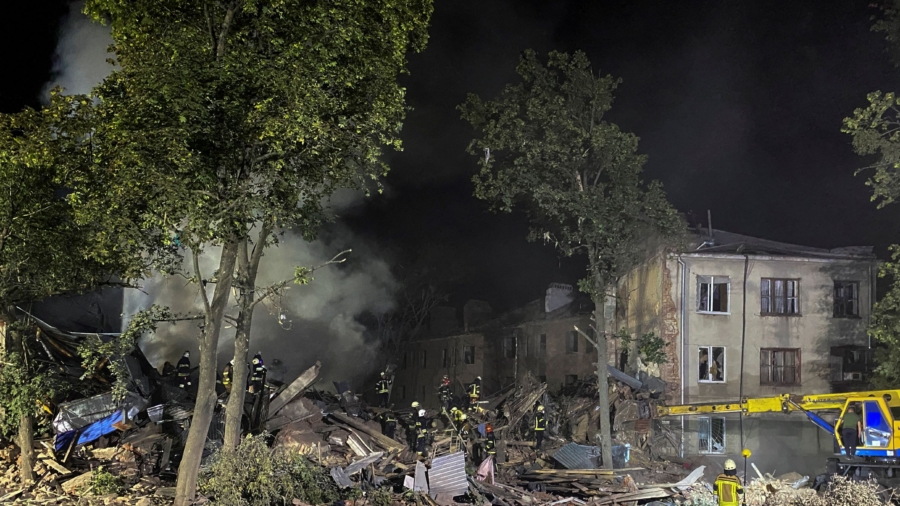KYIV/LVIV, Ukraine—Russia said on Thursday it could shut down Europe’s largest nuclear power station after it came under shelling at the front lines in Ukraine, a move Kyiv said would increase the risk of a nuclear catastrophe there.
Moscow also rejected international calls for a demilitarised zone around the Zaporizhzhia nuclear power plant, which it seized early in the war and which is still operated by Ukrainian engineers under Russian control.
Ukrainian President Volodymr Zelenskyy, who discussed the situation at the plant with visiting U.N. Secretary-General Antonio Guterres in Lviv, called on the United Nations to ensure that it was demilitarized and protected.
The power station sits on the Russian-controlled south bank of a huge reservoir; Ukrainian forces hold the north bank. Recent days have seen several incidents of shelling at the plant, which both side blame on each other.
Foreign countries and the United Nations have called on Moscow to allow in international inspectors. Reuters cannot independently confirm the military situation there or responsibility for shelling of the plant.
Russia’s foreign ministry spokesperson said on Thursday calls for a demilitarised zone around the plant were “unacceptable.” The defence ministry said Moscow could shut the plant down if it came under further attack.
Ukrainian state nuclear energy company Energoatom said shutting down the plant would increase the risk of “a radiation disaster at the largest nuclear power plant in Europe.”
Disconnecting the complex’s generators from Ukraine’s power system would prevent them being used to keep nuclear fuel cool, in the event of a power outage at the plant, it said.
Russia’s defence ministry accused Kyiv of planning some form of incident at the nuclear plant as a “provocation” to take place during Guterres’ visit. A Ukrainian official dismissed what he depicted as a cynical assertion by Moscow.

Urgency
In a briefing, Igor Kirillov, head of Russia’s radioactive, chemical and biological defence forces, said the plant’s back-up support systems had been damaged as a result of shelling. He presented a slide, showing that in the event of an accident, radioactive material would cover Germany, Poland and Slovakia.
Ukraine’s foreign minister, Dmytro Kuleba, said he had spoken to the director general of the International Atomic Agency, who was ready to lead a delegation to the plant.
“I emphasised the mission’s urgency to address nuclear security threats caused by Russia’s hostilities,” he wrote on Twitter.
Turkey’s President Tayyip Erdogan was also expected at the talks with Guterres and Zelenskyy in Lviv, to discuss progress resuming exports of Ukrainian grain under a deal brokered by the United Nations and Ankara to lift a Russian blockade. Both Russia and Ukraine are major food producers, and the blockade has threatened to exacerbate global hunger.
Guterres was also expected to discuss the U.N. role in negotiations over prisoners of war.
After months in which Russian forces made modest territorial gains in heavy fighting in the east, front lines in Ukraine have been comparatively static in recent weeks.
Kyiv claims it is preparing for a counterattack to recapture a swath of southern territory, including Kherson Province and neighbouring Zaporizhzhia where the plant is located.
By Natalia Zinets and Andrea Shalal

